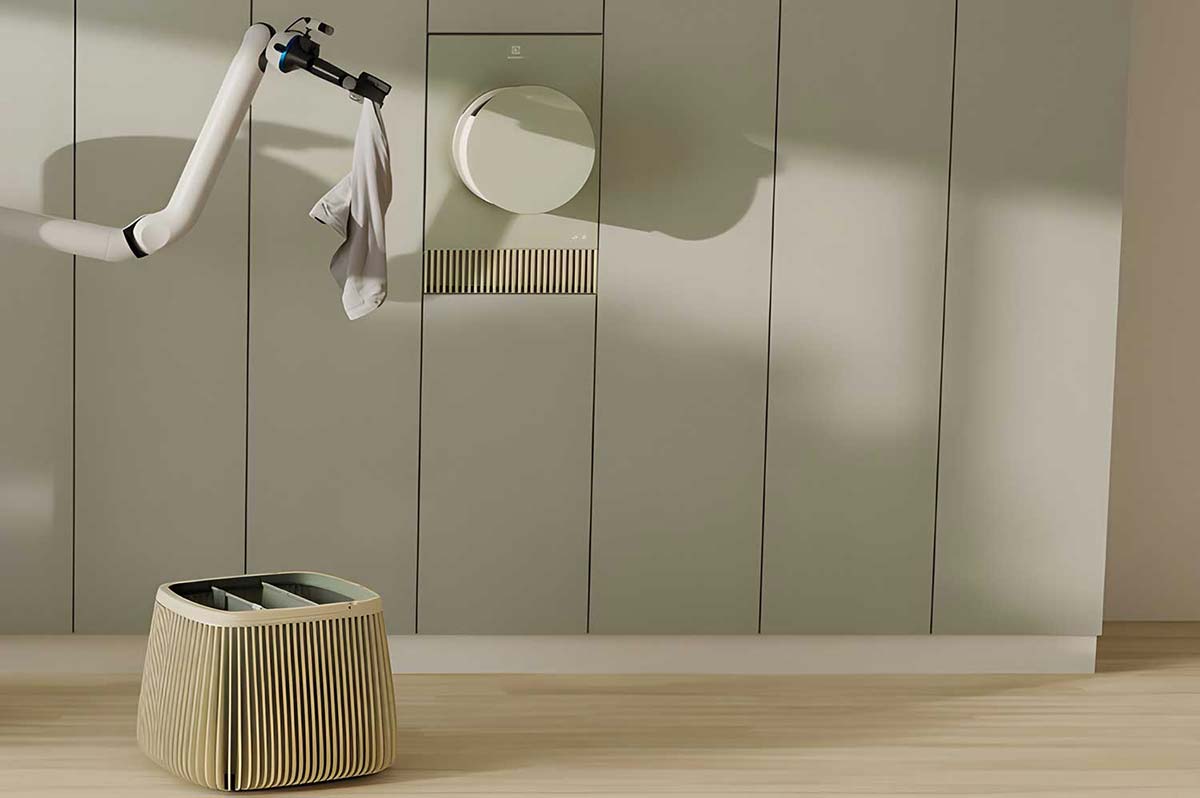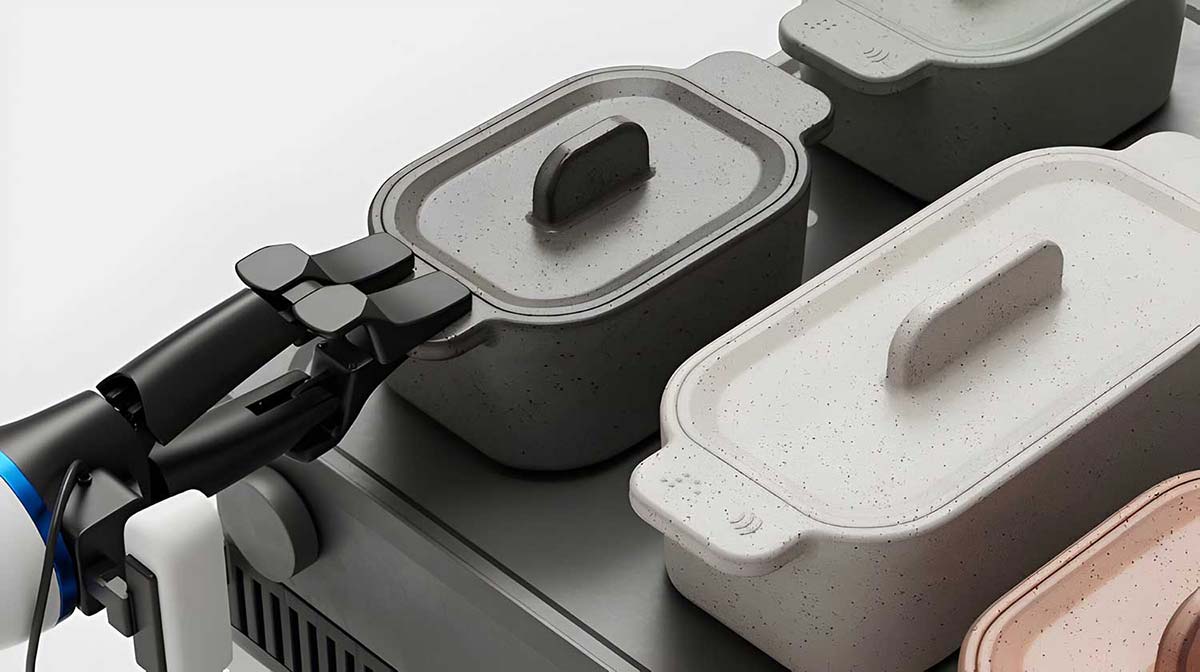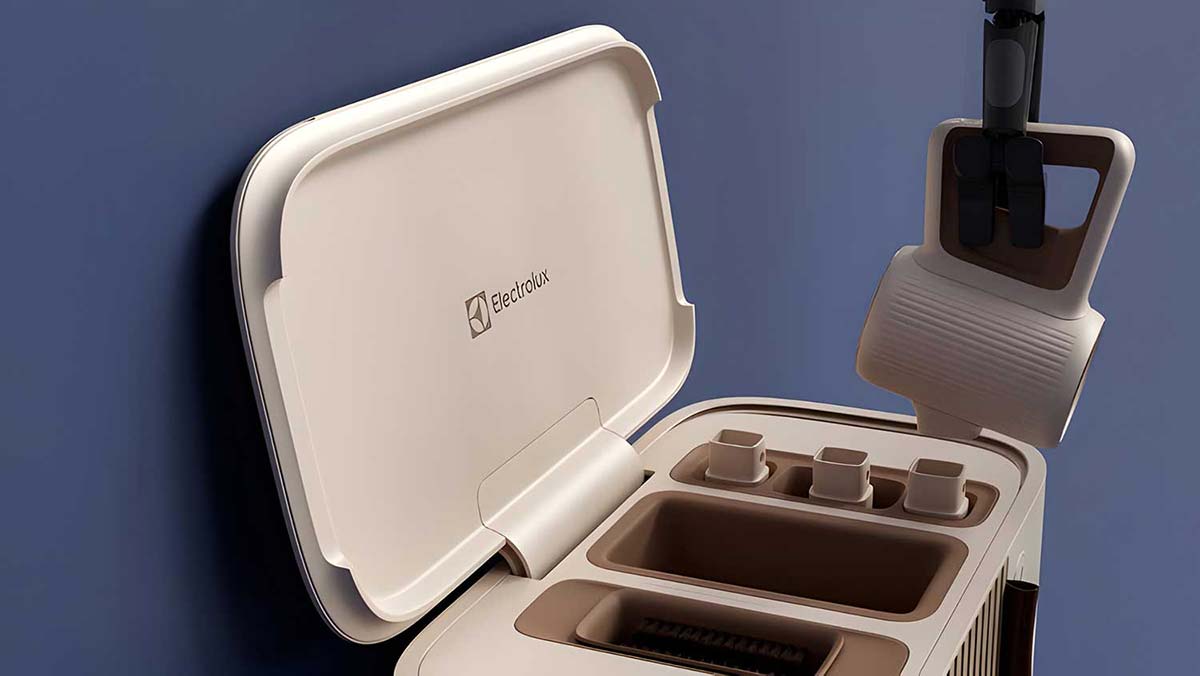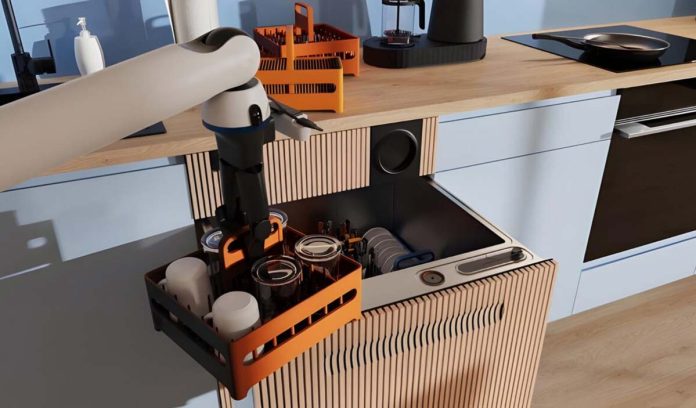The kitchen is one of the foremost domestic zones to change radically due to the advances in technology and artificial intelligence. This aspect of research has been addressed by the Electrolux group, for the sixth consecutive year, in collaboration with the students of the Umeå Institute of Design (UID) in Sweden, with the goal of creating innovative concepts for the house of the future. The aim of this year’s project is to design specific devices for a robotic home assistant, responding to the multiple needs of users with a particular focus on the self-reliance of disabled people.
The concepts proposed by the students started with the premise that normal housework activities can be carried out mainly by robots, with the secondary support of human intervention. The projects have been formulated for various types of consumers, including individuals with visual impairments, elderly couples with limited mobility, and independent senior citizens.
“As we look to the future, we know that robots will play a greater role in all our lives. And that provides a fascinating opportunity to explore how we could design home appliances for personal robots to use to help consumers who face challenges,” says Thomas Johansson, Design Director, Dish Care, Business Area Europe, Electrolux Group.
Created for sight-impaired users, Tray Flex Assist (on cover) is a solution for dishwashers. A robot transports dishes and flatware on trays with handles in the upper part, which can be inserted directly in the appliance. The trays – in high-contrast colors for partially sighted users – can be directly placed in the dishwasher, which functions with vocal commands and has an opening to permit insertion of the tray carried out by the robotic arm.

Senti is a vacuum cleaner robot that helps senior citizens with house cleaning. It permits cleaning in hard-to-reach zones, lifting the vacuum cleaner and accessories from a docking station, to take part in cleaning following instructions activated via app. The unit then returns the vacuum cleaner to its base, discharging dust and cleaning the accessories.

The Atmos robotic assistant can facilitate the process of cooking and reduce risks for visually impaired users. The design team has created a cooktop with a set of upper openings to release steam or heat, activated only when the personalized cookware has been set in place.

Autocare is a laundry solution for senior citizens living on their own; a robot transports a hamper with compartments and wheels to the washing machine, overseeing the entire laundering process.
The Electrolux Group’s collaboration with UID is led by Thomas Johansson, Martin Alexanderson and Timo Mashiyi-Veikkola, Director of Design Research, together with Associate Professor Thomas Degn from UID. Previous themes have included designs for single people living in small spaces (2022), multi-generational homes (2021), and the “new normal” in the post-COVID world (2020).







